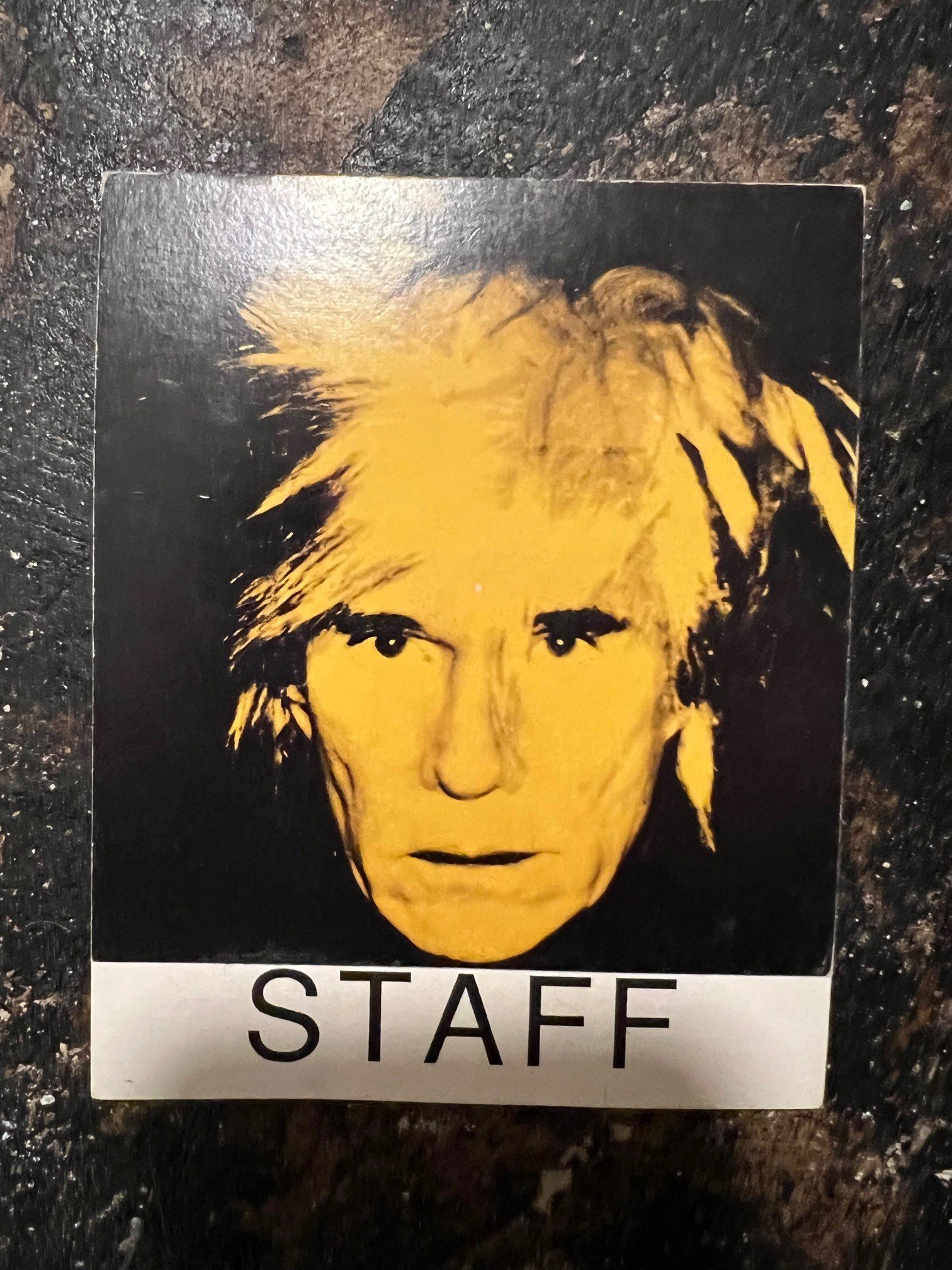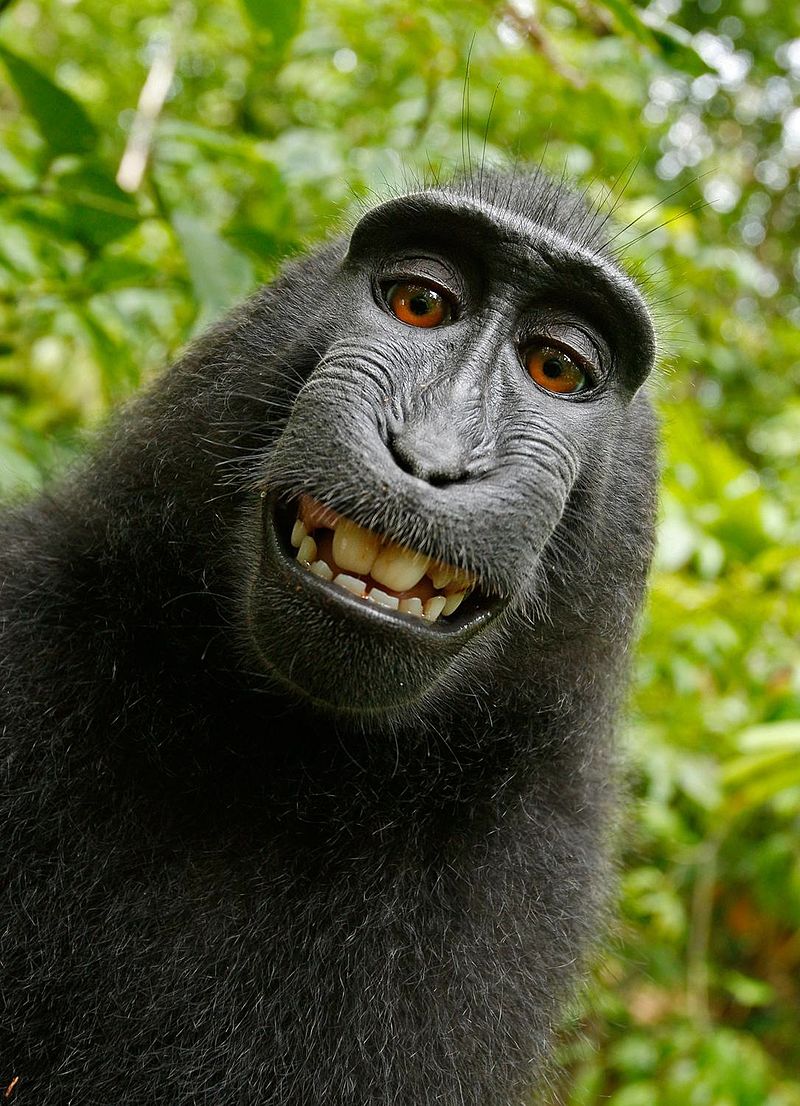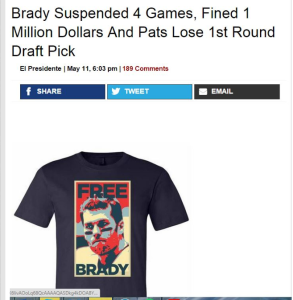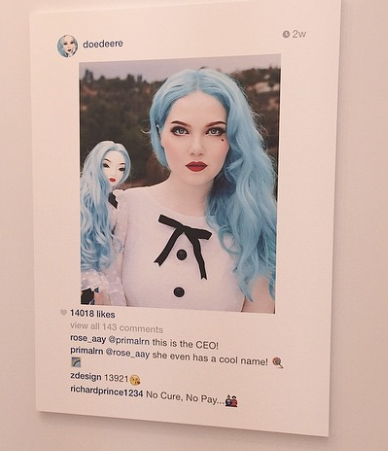The Supreme Court of the United States has issued its long-awaited ruling in the dispute between photographer Lynn Goldsmith and the Andy Warhol Foundation for the Visual Arts (AWFVA) on May 18, 2023. The Court held the AWFVA’s delivery to Condé Nast magazine in 2016 of an Andy Warhol silkscreen from 1984 based on a 1981 Goldsmith photograph of the musician Prince did not satisfy the first factor (of four) of the statutory fair use elements. The Court took a narrow approach, explicitly declining to reach the question of whether Warhol’s original work would qualify for a fair use defense, holding only that the 2016 use did not.
(Williams College Museum of Art Security Badge, ca. 1993)
Read More
Topics:
Cariou v. Prince,
Copyright Act,
Philippa Loengard,
Campbell v. Acuff Rose Music Inc.,
Kernochan Center for Law Media and the Arts,
17 U.S.C. § 107,
Columbia Law School,
Andy Warhol,
Fair Use,
Andy Warhol Foundation for the Visual Arts,
Syracuse University,
Condé Nast,
Kagan,
Sotomayor,
Roberts,
Titian,
Lynn Goldsmith,
Vanity Fair,
Thomas,
Giorgione,
Goya

Sullivan has filed an amicus curiae (friend of the court) brief in the upcoming Supreme Court case Andy Warhol Foundation for the Visual Arts, Inc. v. Goldsmith. The brief was filed as counsel of record for copyright scholar Philippa S. Loengard, the Kernochan Center for Law, Media and the Arts at Columbia Law School. The case concerns the applicability of Section 107 of the Copyright Act, which permits as a fair use that would otherwise be copyright infringement—to a print made by Andy Warhol from a photograph of the musician Prince by photographer Lynn Goldsmith. In particular, the question presented to the Court addresses the implications of the Court’s holding nearly thirty years ago in Campbell v. Acuff-Rose Music, Inc., 510 U.S. 569, 579 (1994) that allowed for the possibility that a secondary use could be considered a fair use if it were sufficiently “transformative.” What exactly that means in the context of visual art has been a fraught—and at times incoherent—subject in recent years. Our brief explains that the Court should return the analysis of fair use to the four factors established by Congress. In the case of the first of the four factors, the Court should focus on the statutory language of the purpose and character of the works. By contrast, the inquiry into the meaning or message of the works advocated by the Warhol Foundation and the amici supporting it is a fool’s errand that provides no clarity and would render the copyright in photographs effectively unenforceable. This case is not a battle between Lynn Goldsmith and Andy Warhol; those artists proved entirely capable in 1984 of arranging the balance for themselves. It is a battle between a maximalist view by the Warhol Foundation that dismisses the value of photography as a creative medium at all.
Read More
Topics:
Copyright Act,
Roy Orbison,
Toward a Fair Use Standard,
Campbell v. Acuff Rose Music Inc.,
Kernochan Center for Law Media and the Arts,
Philippa S. Loengard Esq.,
Columbia Law School,
Prince,
transformative,
Andy Warhol,
Fair Use,
Andy Warhol Foundation for the Visual Arts,
Condé Nast,
People Magazine,
The Time,
2 Live Crew,
Death Valley,
Velázquez,
Rubens,
King Philip IV of Spain,
Las Meninas,
Section 107,
Billboard,
Pierre N. Leval,
“Oh, Pretty Woman”,
Mickey Mouse
After a recent discussion about whether the new Fearless Girl sculpture by Kristen Visbal in Lower Manhattan might implicate the copyright of the earlier Charging Bull sculpture that has been there for nearly three decades, the sculptor who created Charging Bull has stepped to the foreground to complain that the recent installation infringes his rights. In addition to copyright arguments, that artist (Arturo di Modica) suggests that he has a moral rights claim under the Visual Artists Rights Act of 1990 (17 U.S.C. § 106A). But since Charging Bull predates VARA it is probably ineligible for any protection. Even if it were eligible, the elements of VARA rights are not implicated by the installation of The Fearless Girl because nothing has actually happened to Charging Bull. Artistic confrontation is not “distortion, mutilation or other modification” under VARA. In short, none of the arguments he advances would bestow on him the kind of right to be asked first that he proposes.
Read More
Topics:
Copyright Act,
Visual Artists Rights Act of 1990,
VARA,
The Fearless Girl,
Charging Bull,
Arturo Di Modica,
Kristen Visbal,
State Street Global Advisors,
Christina Cauterucci,
Slate,
Carter v. Helmsley Spear, Inc.,
15 U.S.C. § 1125(c),
Derivative Works,
Trademark dilution
The sudden appearance near Wall Street on March 8, 2017 of
The Fearless Girl, a bronze life-sized depiction of a roughly ten-year old girl staring defiantly at the famous
Charging Bull sculpture has prompted headlines throughout the world. Now, a defender of
Charging Bull has
leveled an accusation of copyright infringement against the sculptor of
The Fearless Girl, an allegation that misapprehends how copyright law affects the interplay between works of visual art. In short, the recent sculpture is conclusively (1) not infringement of
Charging Bull, but even if it were (2) would equally clearly be considered a fair use. This example from the headlines is thus instructive to review what copyright does, and does not, cover when commentary and political statements are at issue.
Read More
Topics:
Copyright Act,
Copyright Fair Use,
The Fearless Girl,
New York Stock Exchange,
Charging Bull,
Arturo Di Modica,
Mr. Robot,
Kristen Visbal,
International Women’s Day,
State Street Global Advisors
It appears that the much-maligned “monkey selfie” case is destined for a quick exit. The U.S. District Court for the Northern District of California posted a brief order expressing the sentiment of the presiding judge as expressed at a hearing on a defendant’s motion to dismiss. Specifically, the Hon. William H. Orrick made a tentative ruling that the photograph of a crested black macaque cannot be copyrighted on behalf of the animal itself.
Read More
Topics:
Copyright Act,
People for the Ethical Treatment of Animals,
monkey selfie,
Congress,
PETA,
David Slater,
Copyright,
Blurb Inc.,
Naruto,
Hon. William H. Orrick,
authorship,
Cetacean Community v Bush,
Ars Technica
Somewhat tongue in cheek, we looked on Wednesday at the potential copyright implications from a back and forth between Governor Charlie Baker and Barstool Sports, which sells “Free Brady” T shirts (playing on Shepard Fairey’ famous Hope image) challenging the New England Patriots’ quarterback’s suspension by the National Football League (“DeflateGate” or “Ballghazi,” depending on who you ask). Gov. Baker recently wore a competing vendor’s “Free Brady” T shirt when doing the Ice Bucket Challenge. Given the sales potential arising out of one of the biggest stories in the country right now (insert decline-of-society comment here), however, the financial stakes are no laughing matter. The response to Wednesday's post has been overwhelming; we had more visitors in a three-hour window than we typically get in a month.
Read More
Topics:
National Football League,
Copyright Act,
David Portnoy,
Free Brady,
Barstool Sports,
DeflateGate,
I Love Boston Sports,
Ice Bucket Challenge,
Shepard Fairey,
Copyright,
Senator Obama,
NFL,
Hope,
Tom Brady,
Ballghazi,
Charlie Baker

Tom Brady will be in New York today at a hearing in the litigation over his 4-game suspension by Roger Goodell for allegedly being “generally aware” of the deflation of footballs in the AFC Championship thrashing of the Indianapolis Colts last winter. For good legal analysis of the absolute fiasco that is the NFL’s attempt at a middle-school science project (instigated by the condition of a football introduced from the opposing team—but congratulations on another AFC Finalist banner) and the resulting adjudicatory process, I suggest John Dowd’s blog (“The NFL's investigation of and rules against Tom Brady are a travesty, and they've resulted in uncalled-for penalties. And it's all based on a report that lacks basic integrity, fairness and credibility.”). Dowd is an experienced federal prosecutor and led the investigation, among others, into Pete Rose and gambling for Major League Baseball. Most notably, he was sufficiently offended by the whole exercise to take the issue up with no relationship to the parties. Mike Florio at ProFootballTalk and Steph Stradley have also covered the story well.
Read More
Topics:
Left Shark,
ProFootballTalk,
ALS. Metro,
Copyright Act,
Pete Frates,
David Portnoy,
Indianapolis Colts,
AFC Championship,
Free Brady,
Mike Florio,
Barstool Sports,
Jacqueline Kennedy,
John Dowd,
Ice Bucket Challenge,
Shepard Fairey,
Major League Baseball,
Copyright,
Roger Goodell,
Senator Obama,
Hope,
AFC Finalist,
Andy Warhol,
Tom Brady,
Charlie Baker,
Massachusetts Governor,
Fair Use
Several street artists have sued the property owners of the building in Queens that became known as “5Pointz”—a “Mecca” of graffiti and street art. This is the second such lawsuit, after another group of artists failed to obtain a preliminary injunction in November, 2013, and the owners whitewashed nearly all of the painting on the buildings. The new lawsuit seeks damages related to the whitewashing itself, alleging that it was done hastily and secretly without giving the artists sufficient time either to remove or document their work. It relies on the Visual Artists Rights Act of 1990 (VARA), the lone moral rights provision of the Copyright Act.
Read More
Topics:
HBO,
Copyright Act,
Ishmael,
Moral Rights,
Richard Miller,
Cady Nolan,
Rodney Rodriguez,
FCEE,
Christoph Büchel’s,
Graffiti Art,
Visual Artists Rights Act,
Patch Whiskey,
Kai Niederhausen Semor,
Kenji Takabayashi,
recognized stature,
Banksy Does New York,
Jimmy C,
VARA,
Jerry Wolkoff,
Bienbenido Guerra,
Luis Gomez,
MassMoCA,
Banksy,
TOOFLY,
17 U.S.C. § 106A,
Carlo Nieva,
Copyright,
5Pointz,
PANIC,
James Cochran,
Sotheby's,
Maria Castillo
Reactions to the Richard Prince Instagram story continue to filter in, and highlight the perpetual confusion between what is publicly available and what is in the public domain. They are not the same thing, with important legal consequences.
Read More
Topics:
Richard Prince,
Missy,
Copyright Act,
Prince v. Cariou,
Canal Zone,
Patrick Cariou,
Suicide Girls,
vulture.com,
Yes Rasta,
17 U.S.C. § 107,
Jerry Saltz,
Instagram,
Copyright,
transformativeness,
Fair Use,
ArtNet,
New York Magazine,
§ 107
Few art law cases have received as much attention as that of Richard Prince and his dispute with Patrick Cariou over the latter’s Yes, Rasta photographs that Prince altered, defaced, and otherwise rearranged for his Canal Zone series. Prince has now garnered renewed attention for his appropriation of Instagram images in a set of works he has been selling at a Gagosian Gallery show called “New Portraits" (and in various other venues over the last few months). He escaped liability for infringement of Cariou’s pictures (though the case settled after remand; several infringement claims were still in play when the parties settled). Can he do so again? If this recent effort is not infringement, it certainly begs the question of whether the fair use exception has swallowed the rule. Lastly, Instagram itself may have prohibited the entire exercise in its terms of use, a possible avenue to short-circuit the entire copyright exercise.
Read More
Topics:
Richard Prince,
Copyright Act,
DoeDeere,
2LiveCrew,
Prince v. Cariou,
Roy Orbison,
Canal Zone,
Patrick Cariou,
Internet,
Yes Rasta,
17 U.S.C. § 107,
Instagram,
Copyright,
Gagosian Gallery,
transformativeness,
Fair Use,
§ 107











